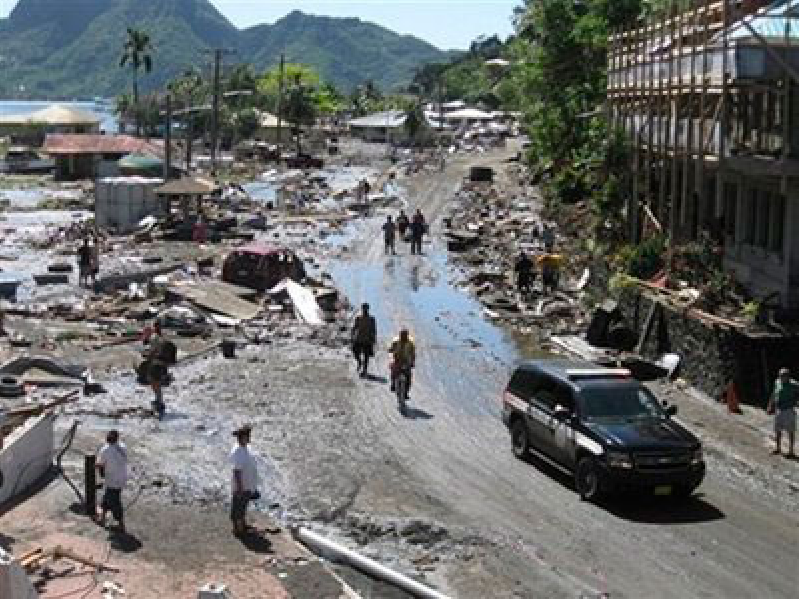
President Barack Obama declared on Wednesday a major disaster for American Samoa, a day after it was hit by a massive tsunami.
The death toll is currently at 113 people and dozens remain missing.
A powerful earthquake, with a magnitude of 8.0, struck around dawn Tuesday (Tuesday night Eastern Time) in the South Pacific, triggering the tsunami over the islands of American Samoa and Samoa.
Filipo Ilaoa, deputy director of the American Samoan office in Honolulu, told The New York Times that the tsunami struck just minutes after the quake, giving residents little to no warning or time to move to higher ground.
Several villages were wiped out and buildings were flattened by the towering waters.
Obama sent his condolences to the families who lost loved ones and vowed a "full, swift and aggressive response" to the disaster.
"The Federal Emergency Management Agency is in close and constant contact with emergency responders, and the U.S. Coast Guard is fully supporting the deployment of resources to those areas in need of immediate assistance. We also stand ready to help our friends in Samoa and the region," he said in a statement.
FEMA said it is dispatching teams to affected areas for assessments and preparing to send supplies to meet the immediate needs of the survivors.
Some faith-based groups, including Christian nonprofits Convoy of Hope and World Vision, have their hands full with relief and recovery efforts in Georgia and the Philippines, where flooding has affected hundreds of thousands of people. But they are monitoring the situation in the tropical islands and preparing to respond.
World Vision Indonesia's Humanitarian and Emergency Affairs director, Jimmy Nadapdap, said the organization will try to fly out an assessment team to determine their course of action.
Along with providing food and water, securing alternative shelter will be critical, Nadapdap said.






